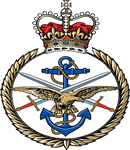Commemorated: | |||
| 1. Book: | The (1921) Masonic Roll of Honour 1914-1918 | Pg.129 | |
| 2. Memorial: | The (1940) Scroll - WW1 Roll of Honour | 47B GQS | |
| 3. Memorial: | Basra Memorial | Panel.21 Basra | |
Awards & Titles: | |||
Service Life:
Campaigns:
- The First World War 1914-1918, World-wide.
| Unit / Ship / Est.: 9th Gurkha Rifles |
| Action : Mesopotamia |
At the outbreak of war the British, together with Indian troops, resolved to protect oil supply in the region by occupying the area around Basra at Abadan. This evolved into a series of campaigns towards Baghdad against the Turkish forces as Mesopotamia (modern Iraq) was part of the Ottoman Empire. Meetings in late 1914 and into 1915 led the Viceroy and Indian government at Simla to reconsider the limited involvement of troops and they decided to order further advances with a view to securing the Shatt-al-Hai, a canal connecting the Tigris and Euphrates river and potentially capturing Baghdad. The British government disagreed and wished to conserve forces for the Western front. The Viceroy was given permission to act as it wished, but told in no uncertain terms that no reinforcements should be expected.
The initial success experienced by the British and Indian forces quickly disintegrated in the face of Ottoman opposition. The Siege of Kut-Al-Amara began on 7th December with the besieging of an 8,000 strong British-Indian garrison in the town of Kut, 100 miles south of Baghdad, by the Ottoman Army. These campaigns produced few tactical benefits, indeed the catastrophic defeat at Kut in 1916 was a major setback. Badhdad was eventually taken in March 1917.
The conditions in Mesopotamia were dreadful. The climate, sickness and disease produced large losses in addition to battle casualties. About as many men died of disease as were killed in action. The Mesopotamia front was part of a strategy hoping for success at lower cost than the Western Front but no decisive victory was achieved.
Detail :
Marlborough College have a documented biography, together with a portrait photograph with his name attached. The document reads, in cursive script: "Frank Nairne Maclaran, the son of the late F.B. Maclaran Esqre M.I.C.E, was born March 4th, 1883. He was at Marlborough College (B.1.) from January 1897 to April 1900. In his last year he was in the School Hockey XI. After leaving Sandhurst he was unattached until in 1904 he joined the Indian Army. He was engaged in Famine Relief work in Bengal 1907-8, and subsequentely held appointment as Senior Supply Officer. In April 1915 he left India for Mesopotamia, to join his own Regiment, the 9th Gurkha Rifles, which became part of the force sent under General Alymer to relieve Kut. Captain Maclaran was killed in the attack upon Turkish trenches at Beit Aiessa on April 15th, 1916.
Probate MACLARAN Frank Nairne of Bareillby India captain 9th Gurkha Rifles died 14th August 1916 in Mesopotamia on active service Probate London 3 August to Grace Edith Maclaran widow. Effects £1343 13s. 9d.
His date of death is recorded in sources as 14th April and 16th August. Although it is usual for the project to weight towards the probate record for date of death, in this case it will weight towards the Marlborough document and others.
Masonic :
| Type | Lodge Name and No. | Province/District : |
|---|---|---|
| Mother : | Siwalik No. 2939 E.C. | Bengal |
Initiated | Passed | Raised |
18th July 1912 | 17th October 1912 | 13th March 1913 |
Listed as a Captain and barracked at Dehra Dun upon initiation in 1912. The last two characters of his surname are crossed out and replaced with 'an' or 'am'. "Killed in Action 1916."
Source :
The project globally acknowledges the following as sources of information for research across the whole database:
- The Commonwealth War Graves Commission
- The (UK) National Archives
- Ancestry.co.uk - Genealogy, Family Trees & Family History online
- ugle.org.uk - The records of the United Grand Lodge of England including the Library and Museum of Freemasonry
Additional Source:
- Founder Researchers : Paul Masters & Mike McCarthy
- Researcher : Bruce Littley

